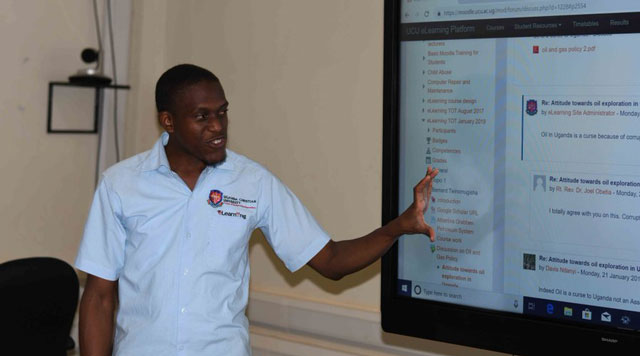
Kampala, Uganda | THE INDEPENDENT | The Ministry of Education and Sports is reviewing the teacher education curricula to address gaps in methods, techniques, and approaches of teaching which were exposed by the COVID-19 unprecedented lockdown.
The review comes amidst the continued closure of schools that has left more than 15 million children stuck in their homes. Amidst the escalating numbers of COVID-19, the ministry is trying to find basic means through which learning process will continue without compromising the health and safety of learners.
Several approaches including but not limited to, the application of radio and TV broadcast lessons, digital and long-distance learning among others have been adopted. However, it has since been proven that the education system was not well prepared to operate outside the four-walled classroom as teachers lack the capacity and skills to successfully deliver lessons using other means.
Hajji Abdul-Majid Nkuutu Kibedi, the Principal Education Officer in the Department of Teacher/Tutor, Instructor Education and Training says that the ministry has established that teachers lack skills on the application of advanced instruction technology to facilitate the new teaching and learning process.
He adds that building from the 2014 program dubbed Active Teaching which intended to introduce the idea of ICT in education in Uganda, the teacher curricula at different levels will be integrated with new approaches, skills, and methods of teaching and instruction.
Teacher training greatly informs practice and in the current situation, Kibedi says there is a misalignment of initial training with the promoted pedagogy and school curriculum. He adds that there are other programs like the Continuous Professional Development which will focus on retooling in-service teacher.
The idea comes at a time when the teachers’ education is undergoing a paradigm shift with the introduction of the new teacher policy. The policy puts in place the Uganda National Institute for Teacher Education- UNITE, a body which intends to, among other things harmonize teacher education in the country.
Caroline Kavuma, the UNITE establishment task-force coordinator shares that they have equally observed how teachers are struggling to use the new instructional technology and started benchmarking on how countries Malaysia, Singapore, and Ireland have successfully used modern tools and technology.
Besides the teacher education review, there have been several voices asking the government to formulate a national policy on e-learning if it is to succeed in digital and long-distance learning for all learners across the country.
Several educationists had already poked holes in the approach used by the government to enhance learning during coronavirus (COVID-19) lockdown questioning the haste with which digital learning is handled might cause the premature death of the idea in its infancy.
*****
URN
 The Independent Uganda: You get the Truth we Pay the Price
The Independent Uganda: You get the Truth we Pay the Price


